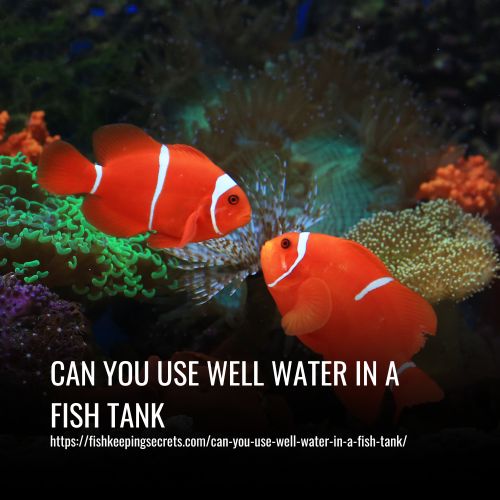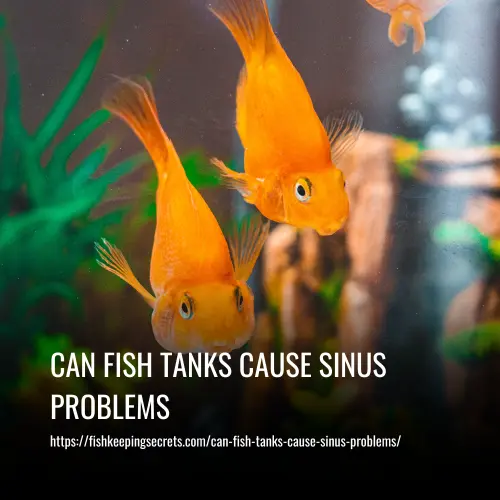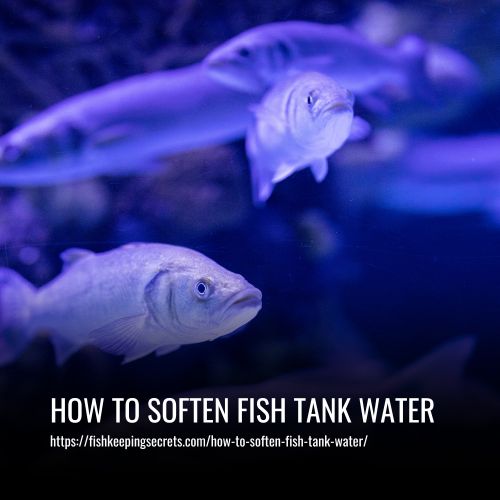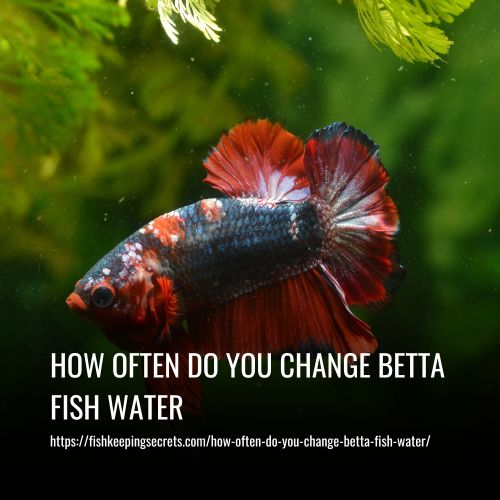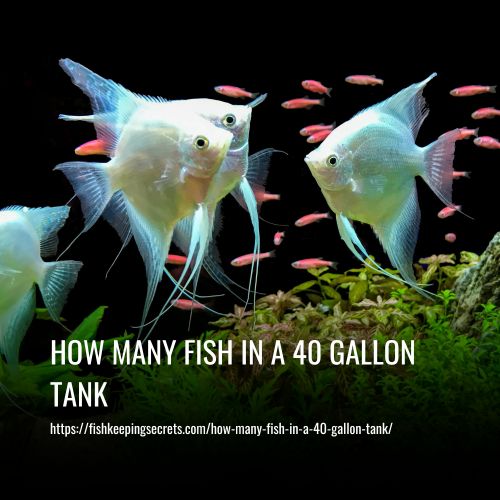Do Fish Vomit
This post contains affiliate links. As an Amazon Associate, we earn from qualifying purchases.
It’s true that fish do vomit. While not all animals have the ability to do so, scientific evidence has found that fish can and do vomit. However, it doesn’t happen very often. Fish aren’t frequent vomiters, so there is no need to worry about your pet fish expelling its food every now and then.
Still, it’s good to know that they are able to do it as a last resort if their digestive systems become upset or something else goes wrong. When this happens, the food can either be digested or not digested yet. If undigested, then the fish will expel large chunks of it; if digested, then it will be more like a thin liquid or mucus type substance that is expelled from its mouth.
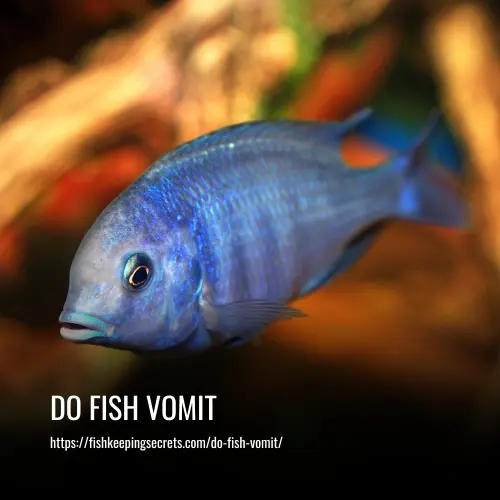
Why Do Fish Vomit
Fish vomit for several reasons. Here are some reasons.
1. Food
When it comes to why fish vomit, food is often one of the main reasons. Fish sometimes eject large chunks of food they have just taken in; this typically occurs when they’re either trying to save the food for later or find it difficult to digest in one bite. By doing this, they break down their meal into smaller components and are able to process and digest them more easily.
Some species also get rid of excess food that may be too big for their digestive systems with this method. This process is not only a necessity for these creatures but helps them stay healthy too!
2. A Stressor
A stressor can be anything that causes a fish to feel threatened. When faced with a stressful situation, such as an aggressive fish in their aquarium, overcrowding, or an environment they don’t like, a fish will naturally try to swim away if they can.
In the wild, the stressor could be predators so getting away by swimming quickly is essential. To make this easier for them, a fish may vomit; this removes items from its stomach that make it heavier and thus slower to move.
3. Disease
Fish can develop various diseases, and it’s important to observe them close enough to recognize signs of ill health. One particularly dangerous disease is Hexamita, which causes lateral line and head erosion, a loss of appetite, and eventually emaciation.
You’ll notice other symptoms too, so it’s essential that you get your fish examined by a qualified professional if you suspect something isn’t right.
4. Overfeeding
Overfeeding is one of the main reasons why fish vomit. Fish, just like other animals and humans, try to cram as much as possible in their tiny stomachs when they’re given food and this often leads to them having too much food in their bodies for them to digest properly. When this happens, the excess food is pushed out in the form of vomiting.
Identifying What the Vomit Is
Recognizing the type of vomit from your fish can provide insights into their health condition. Here are some indicators of vomit types and their possible causes:
1. Food Re-eaten
If your fish vomits and immediately re-eats the food, it is likely due to a normal digestive process or simply overeating. They may have consumed too much in one bite or are trying to better digest their food.
2. Large Chunks of Food
When your fish vomits large chunks of undigested food, it typically indicates the presence of a stressor in their environment. It could be something that is causing them anxiety or discomfort. Observe their behavior to assess whether it is related to a stressor or an issue with digestion.
3. Large Chunks of Food Not Re-eaten
If your fish vomits large chunks of food but does not re-eat it, it is likely a sign of stress or fear. Look for other signs of distress such as rapid swimming, immobility, staying in one corner, or aggressive behavior from other fish in the tank.
4. Digested Food
Vomiting digested food can be a sign of stress or the presence of pathogens, such as diseases. If it is a disease, there might be other symptoms or indicators. If you suspect your fish is sick, it is recommended to transfer them to a separate aquarium to prevent the infection from spreading to other fish.
Understanding the vomit type can help you identify potential issues and take appropriate actions to improve the well-being of your fish.
How to Prevent Vomiting in Fish
To prevent vomiting in fish, it is important to address the following factors:
1. Temperature Fluctuations
Ensure that the temperature in the aquarium remains steady and within the appropriate range for your fish species. Avoid placing the aquarium near sources of heat or cold that could cause temperature fluctuations and stress for the fish.
2. Water Quality
Maintain proper water quality by regularly testing the pH, nitrite, and ammonia levels. The pH should be around 7.0 for tropical fish, but it may vary for different species. Keeping these levels in check will help prevent vomiting and other health issues.
3. Proper Nutrition
Provide your fish with a well-balanced diet that meets their nutritional needs. Overfeeding or feeding them inappropriate food can lead to digestive problems and vomiting. Consult a veterinarian or knowledgeable fish expert for guidance on the specific dietary requirements of your fish.
4. Stress Reduction
Minimize stressors in the fish’s environment, such as sudden changes in water conditions, overcrowding, or aggressive tank mates. Creating a calm and suitable habitat for your fish will help prevent sickness and vomiting.
5. Regular Maintenance
Perform regular aquarium maintenance, including water changes, filter cleaning, and tank cleaning. This helps maintain optimal water conditions and reduces the risk of vomiting-causing pollutants or toxins.
By addressing these factors and providing a healthy and stable environment, you can help prevent vomiting and ensure the overall well-being of your fish.
FAQs
Yes, fish can vomit, but it is not a common occurrence. Overfeeding and stress are the most common reasons for fish to vomit. It is also possible for vomiting to be a sign of disease or infection. However, in general, fish do not vomit frequently and it is rare for them to do so.
Betta fish are known to have small appetites and will only consume food if it meets their dietary needs. If the food isn’t suitable, they will vomit it up. This is a natural trait among Bettas.
Vomiting in fish can be caused by disease, feeding the wrong type of food, or even handling them too much. If you suspect that your fish is vomiting, take it to a professional vet as soon as possible. In the meantime, feed your fish a reduced amount of food and avoid any sudden changes to its environment. Additionally, change the tank water more often to reduce the chance of infection.
Fish may vomit their food, which can be caused by either illness or food that cannot be digested.
Betta fish may be observed to spit out food if the size of the food exceeds the size of their tiny stomachs; in some cases, this may be attributed to commercially-available pellets which are larger than their eyes.
Conclusion
In conclusion, it can be seen that fish do vomit as a result of various reasons and in various ways. Knowing the vomiting mechanisms of different species can help us better understand how to fish process food and its importance for their digestion.
If you want to keep them healthy and thriving, it is best to closely observe your pet which can enable you to quickly identify any signs of illness or discomfort in your fish. Taking care of our aquatic friends is an important responsibility that should not be taken lightly!

